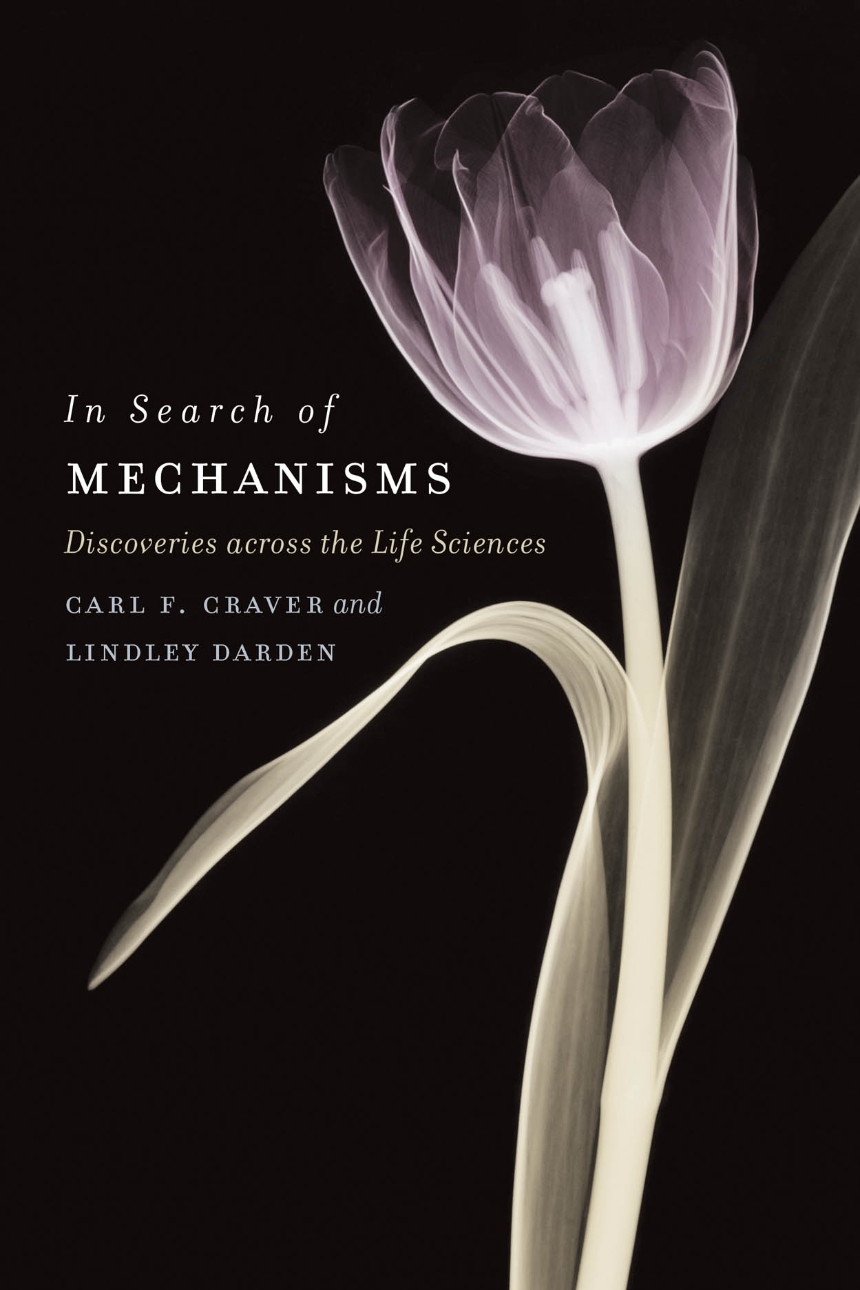In Search of Mechanisms
Discoveries across the Life Sciences
9780226039794
9780226039657
9780226039824
In Search of Mechanisms
Discoveries across the Life Sciences
Neuroscientists investigate the mechanisms of spatial memory. Molecular biologists study the mechanisms of protein synthesis and the myriad mechanisms of gene regulation. Ecologists study nutrient cycling mechanisms and their devastating imbalances in estuaries such as the Chesapeake Bay. In fact, much of biology and its history involves biologists constructing, evaluating, and revising their understanding of mechanisms.
With In Search of Mechanisms, Carl F. Craver and Lindley Darden offer both a descriptive and an instructional account of how biologists discover mechanisms. Drawing on examples from across the life sciences and through the centuries, Craver and Darden compile an impressive toolbox of strategies that biologists have used and will use again to reveal the mechanisms that produce, underlie, or maintain the phenomena characteristic of living things. They discuss the questions that figure in the search for mechanisms, characterizing the experimental, observational, and conceptual considerations used to answer them, all the while providing examples from the history of biology to highlight the kinds of evidence and reasoning strategies employed to assess mechanisms. At a deeper level, Craver and Darden pose a systematic view of what biology is, of how biology makes progress, of how biological discoveries are and might be made, and of why knowledge of biological mechanisms is important for the future of the human species.
256 pages | 14 halftones, 8 line drawings, 4 tables | 6 x 9 | © 2013
Biological Sciences: Physiology, Biomechanics, and Morphology
Reviews
Table of Contents
Table of Contents
List of Illustrations
Preface
Acknowledgments
List of Illustrations
Preface
Acknowledgments
Chapter 1 Introduction: Discovering Mechanisms
Chapter 2 Biological Mechanisms
Chapter 3 Representing Biological Mechanisms
Chapter 4 Characterizing the Phenomenon
Chapter 5 Strategies for Mechanism Schema Construction
Chapter 6 Virtues and Vices of Mechanism Schemas
Chapter 7 Constraints on Mechanism Schemas
Chapter 8 Experiments and the Search for Mechanisms
Chapter 9 Strategies for Revising Mechanism Schemas
Chapter 10 Interfield and Interlevel Integration
Chapter 11 The Pragmatic Value of Knowing How Something Works
Chapter 12 Conclusion
Chapter 2 Biological Mechanisms
Chapter 3 Representing Biological Mechanisms
Chapter 4 Characterizing the Phenomenon
Chapter 5 Strategies for Mechanism Schema Construction
Chapter 6 Virtues and Vices of Mechanism Schemas
Chapter 7 Constraints on Mechanism Schemas
Chapter 8 Experiments and the Search for Mechanisms
Chapter 9 Strategies for Revising Mechanism Schemas
Chapter 10 Interfield and Interlevel Integration
Chapter 11 The Pragmatic Value of Knowing How Something Works
Chapter 12 Conclusion
References
Index
